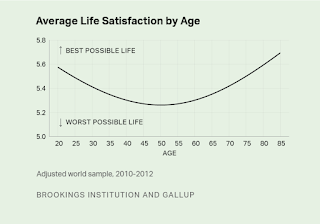Susan Miller
USAToday.com
Originally posted 23 Feb 24
Here is an excerpt:
Laura Hoge, a clinical social worker in New Jersey who works with transgender people and their families, said the survey results underscore what she sees in her daily practice: that lives improve when access to something as basic as gender-affirming care is not restricted.
“I see children who come here sometimes not able to go to school or are completely distanced from their friends,” she said. “And when they have access to care, they can go from not going to school to trying out for their school play.”
Every time misinformation about transgender people surfaces, Hoge says she is flooded with phone calls.
The survey now gives real-world data on the lived experiences of transgender people and how their lives are flourishing, she said. “I can tell you that when I talk to families I am able to say to them: This is what other people in your child’s situation or in your situation are saying.”
Gender-affirming care has been a target of state bills
Gender-affirming care, which can involve everything from talk sessions to hormone therapy, in many ways has been ground zero in recent legislative debates over the rights of transgender people.
A poll by the Trevor Project, which provides crisis and suicide prevention services to LGBTQ+ people under 25, found that 85% of trans and nonbinary youths say even the debates about these laws have negatively impacted their mental health.
In January, the Ohio Senate overrode the governor’s veto of legislation that restricted medical care for transgender young people.
The bill prohibits doctors from prescribing hormones, puberty blockers, or gender reassignment surgery before patients turn 18 and requires mental health providers to get parental permission to diagnose and treat gender dysphoria.
Here are my thoughts:
A landmark study is underway: the largest survey of transgender individuals in the United States. This comprehensive data collection holds the potential to be a powerful weapon against harmful myths and misinformation surrounding the transgender community. By providing a clear picture of their experiences, the survey can challenge misconceptions, inform policy, and ultimately improve the lives of transgender individuals. This data-driven approach has the potential to foster greater understanding and acceptance, paving the way for a more inclusive society.







